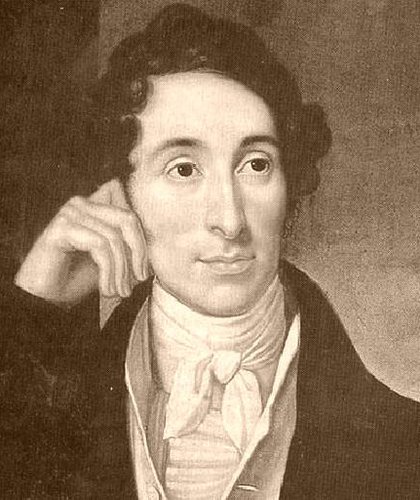
Carl Maria von Weber
He studied in Salzburg (with Michael Haydn), Munich (J.N. Kalcher) and Vienna (Abbé Vogler), becoming Kapellmeister at Breslau (1804) and working for a time at Württemberg (1806) and Stuttgart (1807). With help from Franz Danzi, intellectual stimulation from his friends Gänsbacher, Meyerbeer, Gottfried Weber and Alexander von Dusch and the encouragement of concert and operatic successes in Munich (especially Abu Hassan), Prague and Berlin, he settled down as opera director in Prague (1813-16). There he systematically reorganized the theatre's operations and built up the nucleus of a German company, concentrating on works, mostly French, that offered an example for the development of a German operatic tradition. But his searching reforms (extending to scenery, lighting, orchestral seating, rehearsal schedules and salaries) led to resentment. Not until his appointment as Royal Saxon Kapellmeister at Dresden (1817) and the unprecedented triumph of Der Freischütz (1821) in Berlin and throughout Germany did his championship of a true German opera win popular support. Official opposition continued, both from the Italian opera establishment in Dresden and from Spontini in Berlin; Weber answered critics with the grand heroic opera Euryanthe (1823, Vienna). His rapidly deteriorating health and his concem to provide for his family induced him to accept the invitation to write an English opera for London; he produced Oberon at Covent Garden in April 1826. Despite an enthusiastic English reception and every care for his health, this last joumey hastened his decline; he died from tuberculosis, at 39.